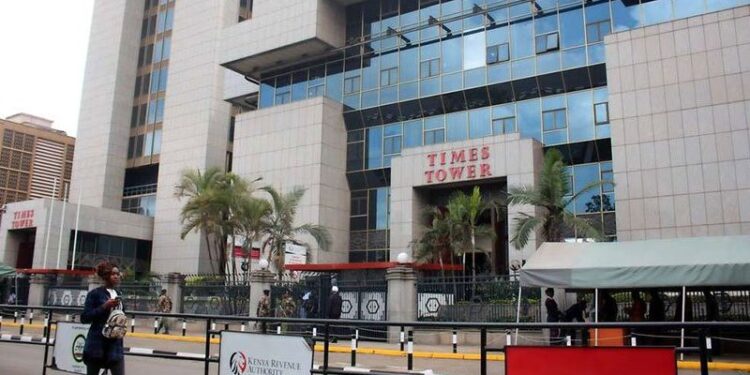In a progressive move to ease tax compliance and encourage taxpayers to clear outstanding liabilities, the Kenya Revenue Authority (KRA) has unveiled a tax amnesty program covering interest, penalties, and fines on tax debt accrued up to December 31, 2023. Introduced under the Tax Procedures (Amendment) Act, 2024, this initiative is set to run from December 27, 2024, to June 30, 2025.
This article delves into the details of the tax amnesty program, its benefits for taxpayers, and the steps you need to take to benefit from this opportunity to regularize your tax affairs.
What is the KRA Tax Amnesty Program?
The tax amnesty program aims to provide relief to individuals and businesses struggling with accrued tax debts by waiving penalties and interest, provided they settle the principal tax owed. This move is expected to foster compliance, reduce the tax burden on individuals and businesses, and enhance government revenue collections.
The amnesty covers all interest, penalties, or fines for taxes accrued up to December 31, 2023. It comes in two main options for taxpayers:
- Automatic Waiver
- Taxpayers who have already paid all principal taxes due by December 31, 2023, will automatically have their penalties and interest waived.
- No application is needed for this category.
- Application-Based Amnesty
- Taxpayers who have not cleared their principal taxes by December 31, 2023, can apply for the amnesty.
- They will need to propose a payment plan for the outstanding principal tax, which must be settled in full by June 30, 2025.
This dual-approach mechanism ensures that the amnesty program is accessible to all taxpayers, regardless of their current financial situation.
Why This Tax Amnesty is Significant
Kenya’s economy has faced significant challenges in recent years, including the economic fallout from the COVID-19 pandemic, inflationary pressures, and a rising cost of living. These factors have made it difficult for many individuals and businesses to meet their tax obligations.
The tax amnesty serves several critical purposes:
- Relief for Taxpayers: By waiving penalties and interest, the program eases the financial burden on taxpayers, allowing them to focus on paying the principal tax.
- Boosting Compliance: Encouraging taxpayers to clear their debts helps KRA increase voluntary compliance, which is crucial for the country’s revenue mobilization.
- Supporting Economic Growth: A more predictable and less punitive tax regime fosters a conducive environment for business operations and investments.
- Enhancing Government Revenue: By incentivizing payment of the principal tax, the amnesty program helps the government recover funds that might otherwise remain unpaid.
Who Can Benefit from the Tax Amnesty?
The amnesty is open to all individuals and businesses with tax liabilities for periods up to December 31, 2023. This includes:
- Small and Medium Enterprises (SMEs): Many SMEs have struggled with tax compliance due to limited resources. The amnesty offers them a chance to get back on track.
- Corporations: Larger entities with significant tax liabilities can also benefit by negotiating payment plans.
- Individual Taxpayers: Self-employed professionals, landlords, and other individuals with outstanding tax debts can use this opportunity to regularize their tax affairs.
How to Take Advantage of the Tax Amnesty
1. Automatic Waiver
If you’ve already cleared all principal taxes for the period up to December 31, 2023, there’s no need to apply. The penalties and interest will be automatically waived.
2. Application-Based Amnesty
For those who haven’t cleared their principal taxes:
- Prepare Your Tax Records: Ensure all relevant documents and records are updated to calculate your outstanding principal tax.
- Apply for the Amnesty: Submit an application to the KRA Commissioner for Domestic Taxes. The application must include a proposed payment plan detailing how you intend to settle the outstanding principal tax.
- Adhere to Payment Plan Deadlines: Ensure that the entire principal tax is paid by June 30, 2025, to qualify for the waiver.
Taxpayers are encouraged to consult with tax professionals or visit their nearest Tax Service Office (TSO) for guidance.
Why You Should Act Now
The tax amnesty program presents a golden opportunity for taxpayers to clear their tax liabilities without the burden of penalties and interest. Here’s why you should take advantage of it:
- Avoid Future Penalties: Clearing your tax debt now ensures that you won’t face additional penalties or interest in the future.
- Compliance Benefits: Being tax-compliant opens doors to government contracts, tenders, and business opportunities.
- Peace of Mind: Settling tax debts alleviates financial stress and allows you to focus on growing your business or improving your personal finances.
Common Questions About the Tax Amnesty
1. What Happens if I Miss the June 30, 2025 Deadline?
Failure to settle the principal tax by the deadline means you will not qualify for the amnesty. Interest and penalties on the outstanding amount will be reinstated.
2. Can I Negotiate the Payment Plan?
Yes. Taxpayers can propose a payment plan that suits their financial situation, subject to approval by the KRA.
3. Does the Amnesty Cover All Taxes?
The amnesty covers all types of taxes, including income tax, VAT, excise duty, and others, as long as the liabilities are for periods up to December 31, 2023.
The Role of Taxpayers in National Development
The KRA’s slogan, “Tulipe Ushuru, Tujitegemee” (Let’s Pay Taxes to Be Self-Reliant), underscores the importance of tax compliance in achieving Kenya’s development goals. Taxes fund critical sectors like education, healthcare, infrastructure, and security, driving economic growth and improving living standards.
The tax amnesty program is not just about clearing debt; it’s about fostering a culture of compliance that supports national development. By participating in the program, taxpayers contribute to a stronger, self-reliant Kenya.
Key Contacts for More Information
For clarification or further assistance, taxpayers can reach the KRA through:
- Tel: +254 (020) 4 999 999 / +254 (0711) 099 999
- Email: callcentre@kra.go.ke
- Nearest Tax Service Office (TSO): Visit your local KRA office for personalized guidance.
The Kenya Revenue Authority’s 2024 tax amnesty program is a timely initiative that balances the need for revenue collection with the economic realities facing taxpayers. By waiving penalties and interest, the program provides a pathway for individuals and businesses to achieve compliance while reducing their financial burden.
Taxpayers are urged to seize this opportunity, not only to regularize their tax affairs but also to contribute to Kenya’s vision of self-reliance and sustainable development. With a clear deadline of June 30, 2025, the time to act is now.
For more information, visit www.kra.go.ke.





